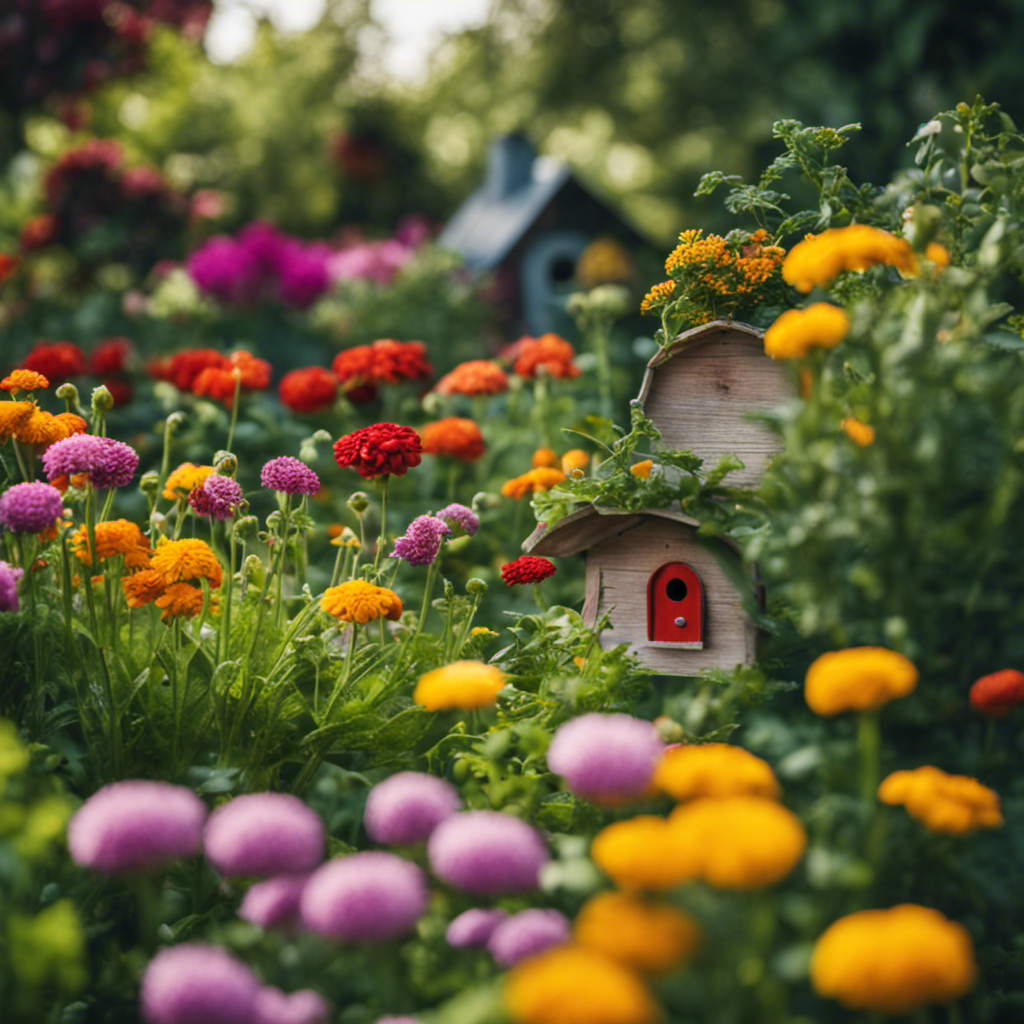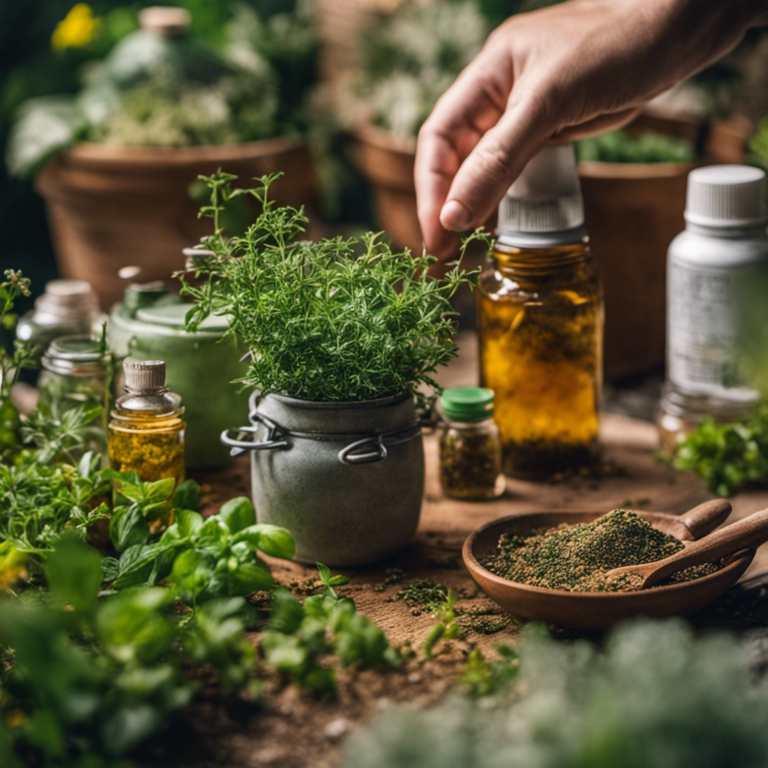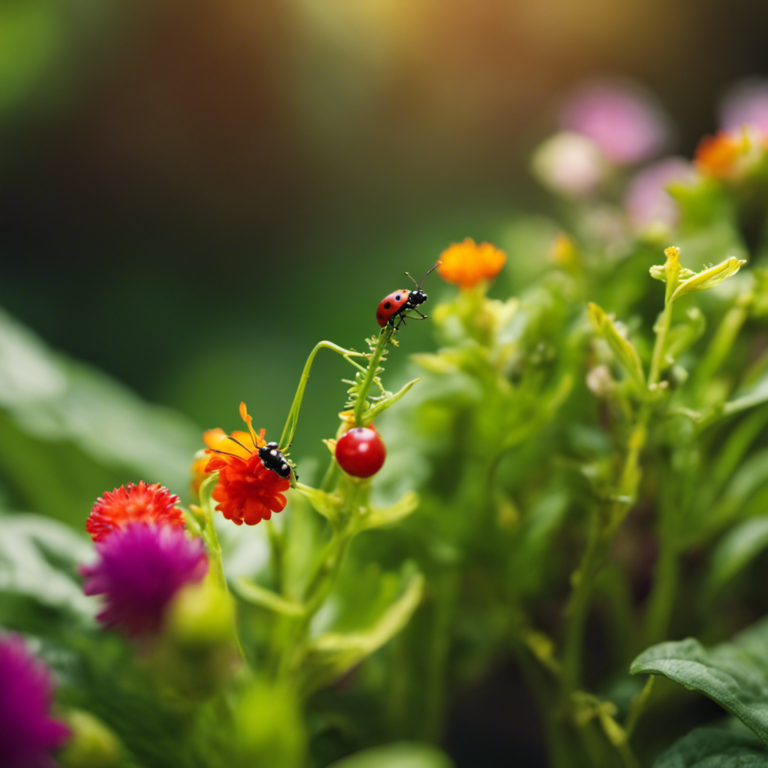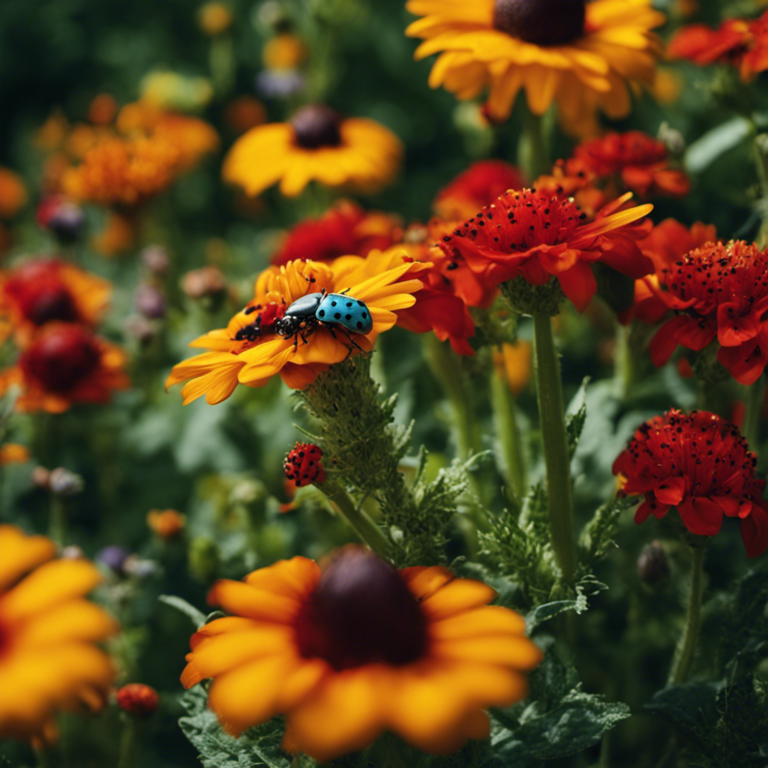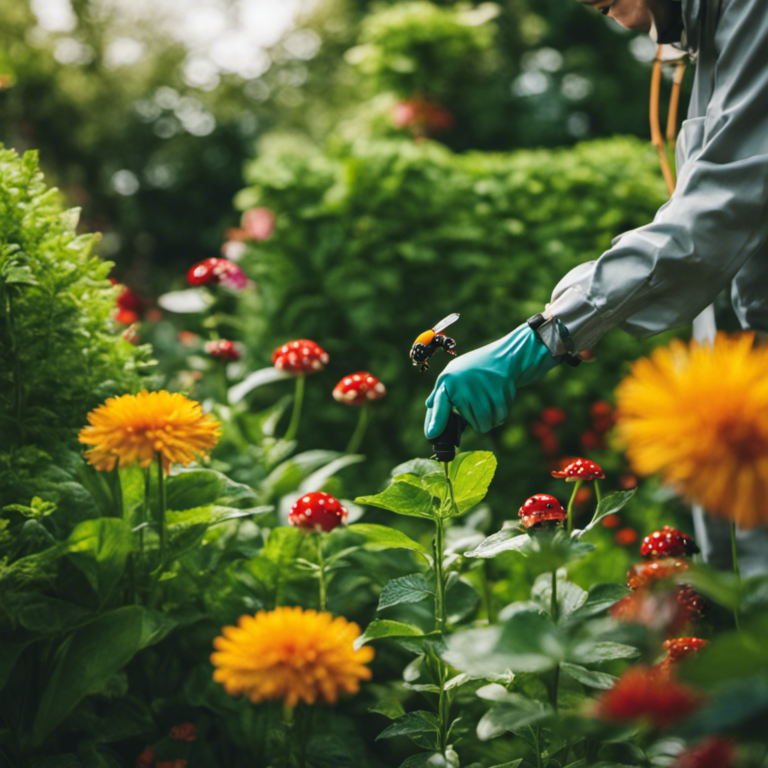Unveiling Natural Methods for a Pest-Free Garden
Are you searching for a way to protect your garden from pests without resorting to harmful chemicals? Have you ever wondered how to create a haven for your plants that is free from pesky intruders? Well, you’re in luck!
In this article, we will reveal effective organic methods that will enable you to cultivate a vibrant and thriving garden. From utilizing natural repellents to attracting beneficial insects and practicing companion planting, we will provide you with practical techniques based on experience to keep those unwanted pests at bay.
Prepare to uncover the secrets of maintaining a pest-free garden!
Quote: ‘A healthy garden is a testament to the power of natural pest control.
Key Takeaways
Implementing organic methods for pest-free gardens is not only practical but also beneficial for the environment and our health. While some may argue that these methods require extra effort or do not provide immediate results, the visual representation of flourishing, vibrant gardens teeming with life and devoid of harmful pests speaks volumes. By embracing natural repellents, beneficial insects, companion planting, organic pesticides, and physical barriers, we can create beautiful and sustainable gardens that demonstrate the power of organic gardening.
Natural Repellents
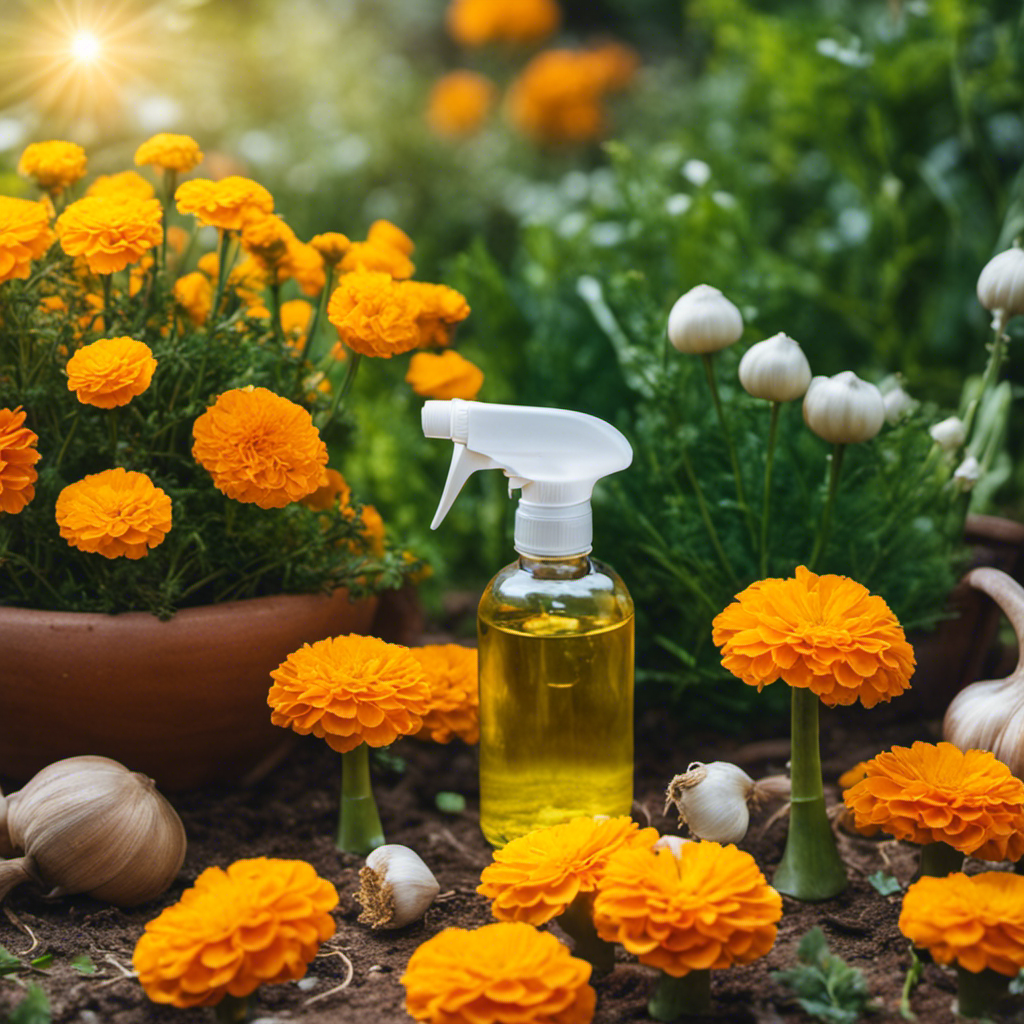
Protecting your garden from pests is important, and using natural repellents is a great way to do so. Instead of relying on chemical pesticides, consider using essential oils and homemade remedies.
Essential oils like peppermint, lavender, and citrus have powerful scents that repel pests such as ants, mosquitoes, and flies. You can easily make a repellent spray by mixing a few drops of these oils with water and spraying it around your garden. Not only will this keep pests away, but it will also give your garden a fresh and pleasant aroma.
Homemade remedies are another effective option. For example, you can make a chili pepper spray or garlic spray. Simply blend chili peppers or garlic with water, strain the mixture, and spray it on your plants.
These natural repellents are safe for your garden, environmentally friendly, and cost-effective alternatives to chemical pesticides. By using these natural solutions, you can protect your garden while promoting a healthy and sustainable environment.
Beneficial Insects
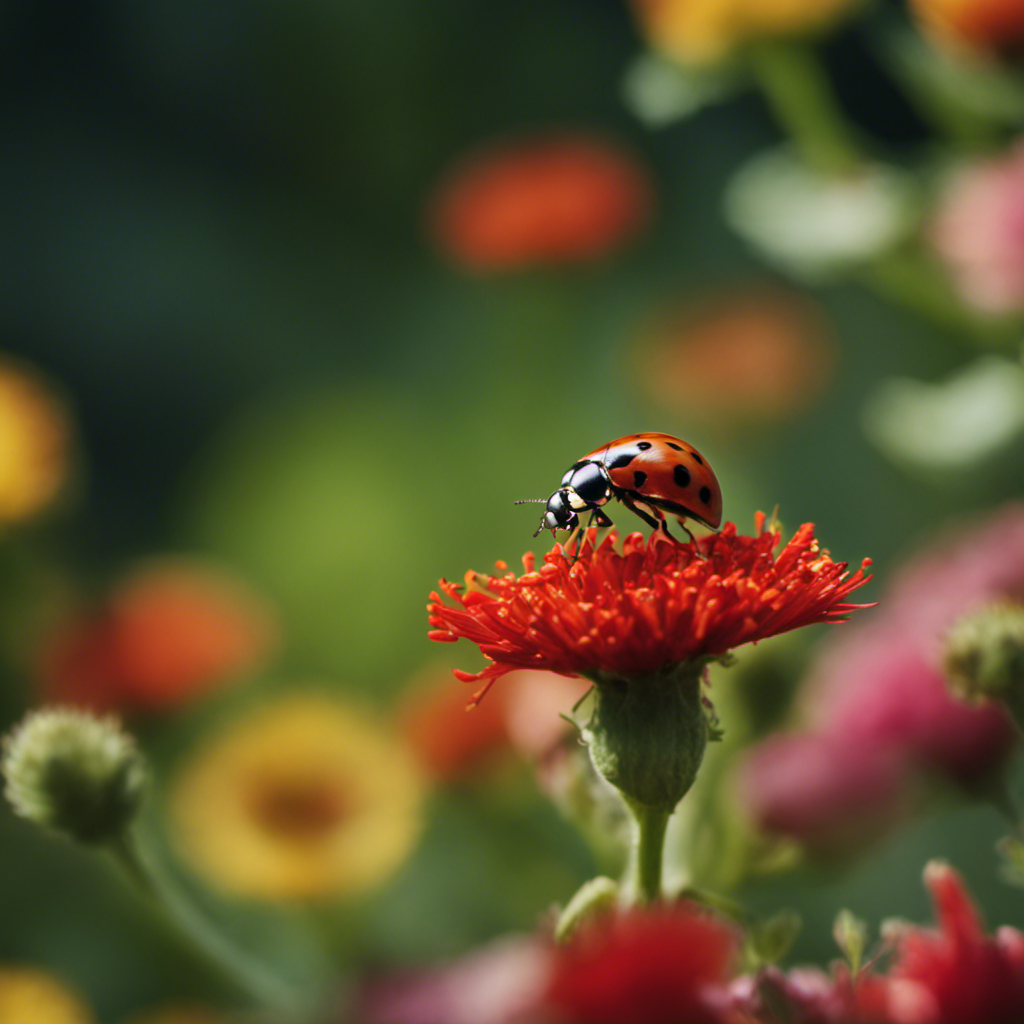
Attracting beneficial insects is a great way to protect your garden from pests. These insects play a crucial role in pest control and help maintain a balanced ecosystem. Integrated pest management techniques can encourage the presence of these helpful creatures.
Ladybugs, lacewings, and hoverflies are examples of beneficial insects that feed on garden pests like aphids, mites, and caterpillars. To attract these insects, you can provide them with suitable habitats and food sources. Planting a variety of flowering plants, such as daisies, marigolds, and yarrow, can attract beneficial insects by providing nectar and pollen.
Additionally, creating areas with rocks, logs, or brush piles can offer shelter and nesting sites for these beneficial creatures. By incorporating these practices, you can harness the power of beneficial insects to naturally control pests in your garden.
Companion Planting
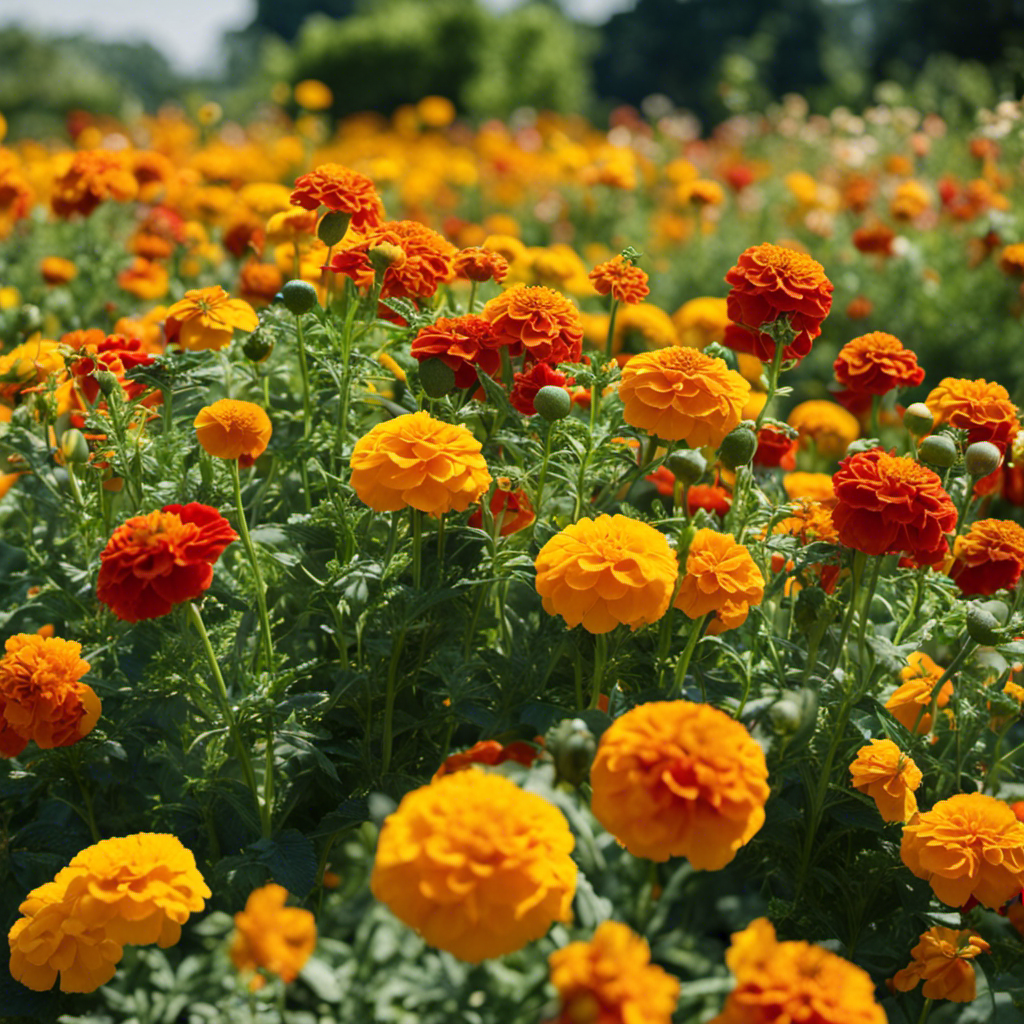
Companion Planting
Planting certain crops together can help keep pests away and promote healthier growth in your garden. Companion planting is a useful technique that involves strategically mixing plants to benefit one another. Here are three interplanting strategies to consider:
-
Crop rotation: Rotate your crops each season to prevent the buildup of pests and diseases. For example, you can plant legumes like beans or peas after heavy feeders like tomatoes to enrich the soil with nitrogen.
-
Interplanting flowers and herbs: Planting flowers and herbs alongside your vegetables can attract beneficial insects that prey on pests. Marigolds, for instance, can repel nematodes and attract pollinators.
-
Planting trap crops: Interspersing trap crops that pests prefer, such as radishes or lettuce, can divert their attention away from your main crops.
Organic Pesticides
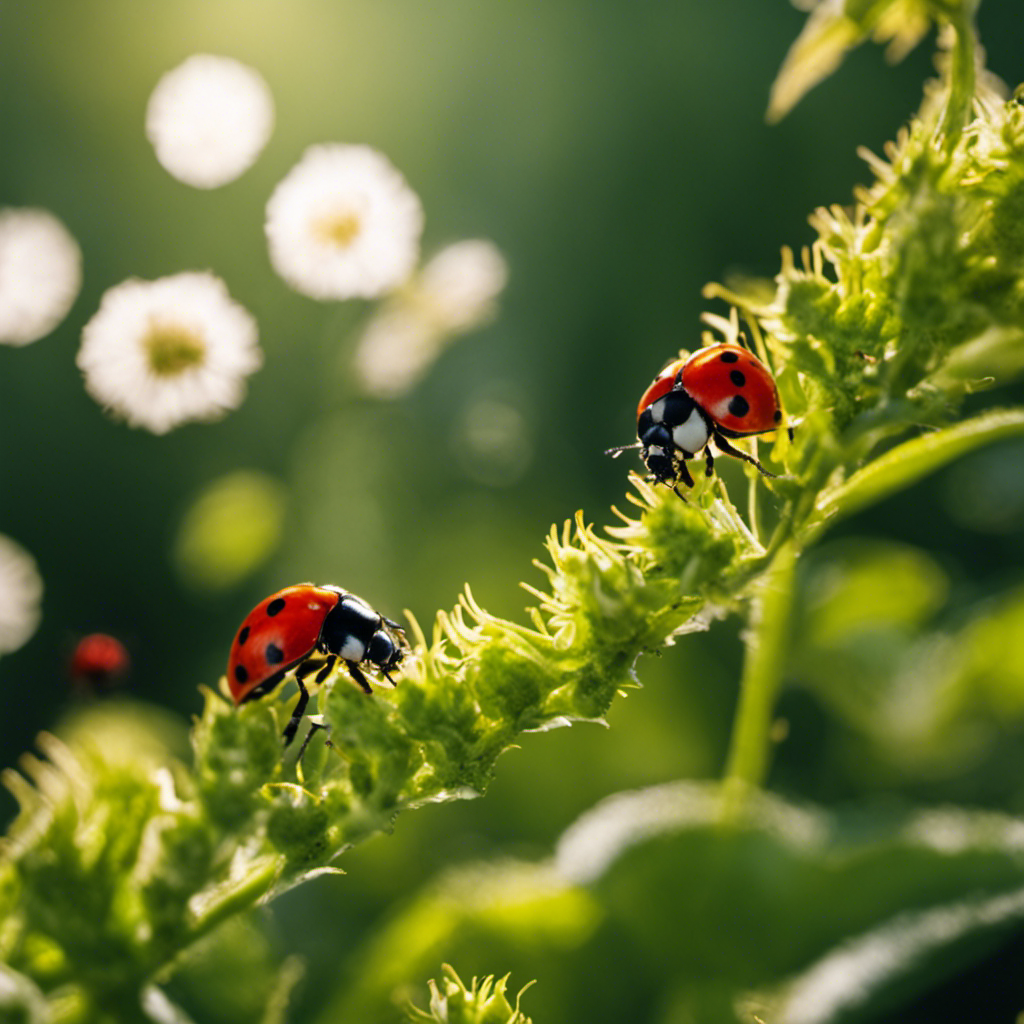
To effectively protect your garden from pests while maintaining organic practices, using organic pesticides is an important step. Organic pesticides, which are derived from natural sources like plants, minerals, or bacteria, can be used as part of an Integrated pest management (IPM) program. This holistic approach combines various strategies to minimize pest damage. While homemade remedies can work against certain pests, it’s crucial to understand that not all pests can be controlled solely through these methods. These pesticides are designed to target specific pests while minimizing harm to beneficial insects and the environment.
When using organic pesticides, it’s important to carefully read and follow the instructions to ensure proper application and dosage. By incorporating organic pesticides into your pest management routine, you can effectively protect your garden while staying true to organic principles.
Physical Barriers
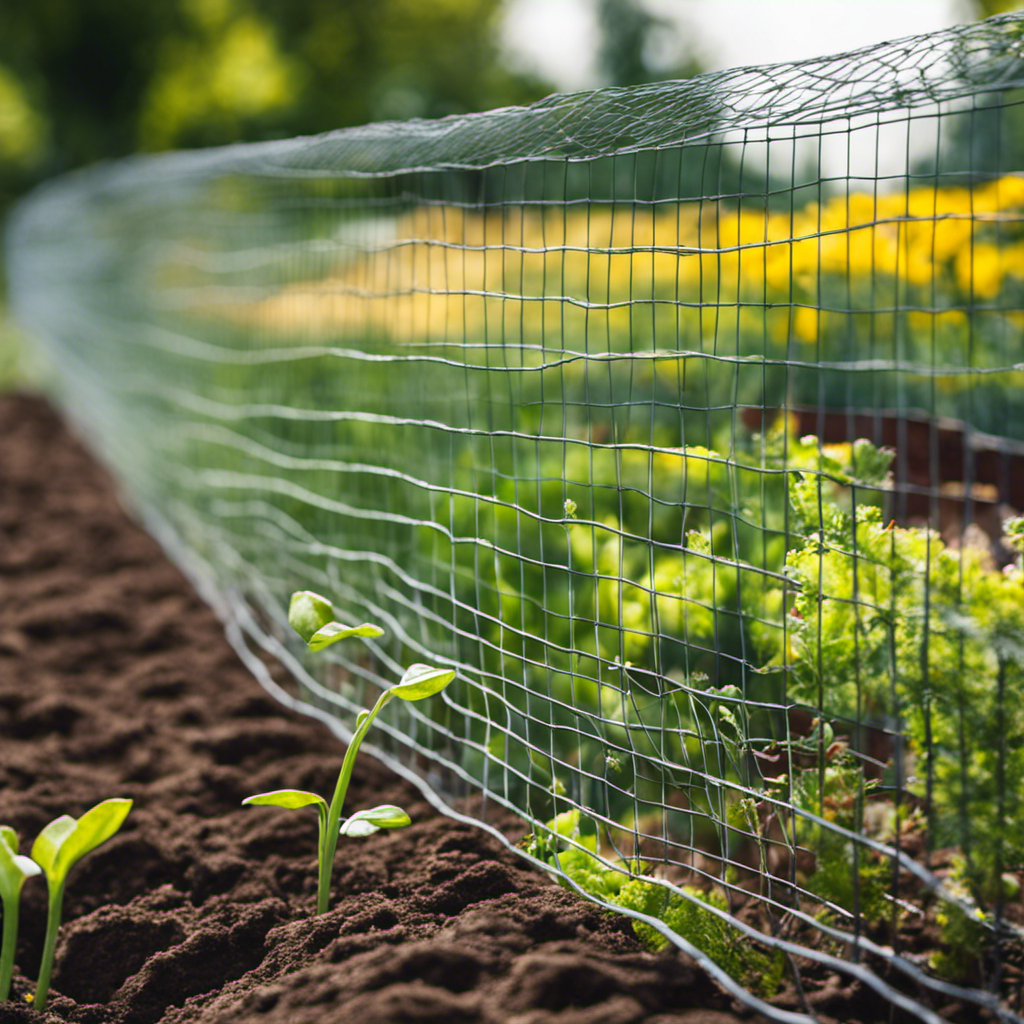
To effectively prevent pests from entering your garden, it’s important to regularly install physical barriers. These barriers act as protective shields, keeping pests away from your precious plants. Here are three effective physical barriers that you can use in your garden:
-
Garden fencing: Erect a sturdy fence around your garden to keep out larger pests such as rabbits, deer, and groundhogs. Choose a fence that’s tall enough and made of materials that can’t be easily penetrated.
-
Row covers: Cover your garden beds with lightweight fabric or netting to create a barrier that prevents pests like aphids, caterpillars, and beetles from reaching your plants. Make sure to secure the covers tightly to keep pests from sneaking in.
-
Plant collars: Place collars around the stems of delicate plants to protect them from crawling pests like cutworms. Use materials such as cardboard, plastic, or aluminum foil to create a physical barrier that pests can’t cross.
Conclusion
Implementing organic methods for pest-free gardens isn’t only practical but also beneficial for both the environment and our health.
While some may argue that these methods require extra effort or don’t provide immediate results, the visual representation of flourishing, vibrant gardens teeming with life and devoid of harmful pests speaks volumes.
By embracing natural repellents, beneficial insects, companion planting, organic pesticides, and physical barriers, we can create beautiful and sustainable gardens that demonstrate the power of organic gardening.
